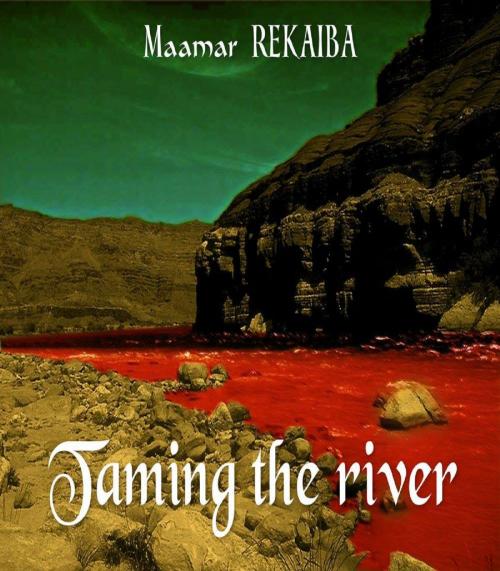Taming the river
Nonfiction, Social & Cultural Studies, Current Events, Political Science, Government, Local Government| Author: | Maamar REKAIBA | ISBN: | 1230000696876 |
| Publisher: | Maamar REKAIBA | Publication: | October 1, 2015 |
| Imprint: | Language: | English |
| Author: | Maamar REKAIBA |
| ISBN: | 1230000696876 |
| Publisher: | Maamar REKAIBA |
| Publication: | October 1, 2015 |
| Imprint: | |
| Language: | English |
This slender book is thick with information, reflexion, and humanity. It is about a man. It is about a country. It is about a very wide panorama of contemporary history. It is about good and evil, and how difficult it is to make a choice.
How violence permeates our lives, and how more violence may be needed to stop it, is one way to describe this story. The river of violence that can carry away everything in its flood can only be tamed by patient engineering, consistent investment, and erecting solid dams. If that effort is not made, the erratic river may rise again after a storm, and destroy the land it should fertilise.
Ours are violent times. Arrogant powers and greedy men draw upon the global village a web of conflicting interests, well outside the classical disputes for land or water and of class struggles. The trafficking of lethal weapons and lethal drugs is the greatest source for profit of the unscrupulous, generating corruption of states and administrations. Against such corruption, perverted ideologies feed a faceless terrorism, easily manipulated by the corruptors themselves.
Algeria, abandoned fifty years ago by her former colonial settlers to the dictatorship of one totalitarian party, has known a period of chaos, when many men, despairing to make a decent living for themselves and their family, took to the hills and became agents of terror, under the guidance of men – sometimes outsiders – who used religion as a political ideology. Syria, Egypt, but also France or the United Kingdom, are very much concerned by this reflexion, which makes the publishing of this book all the more timely.
“Taming the river” is the history of a man, Tahar, son of Ramdane, a jobless engineer that becomes a leader of the Islamic underground movement, then realises his mistake and turns the tide of violence, bringing his men back to the path of law and order, and fighting the traffickers and corrupters of his country. This does not happen without some bloodshed, but the tradition of fiction is kept as Tahar finds a happy end to his story in the arms of beautiful Salima.
This slender book is thick with information, reflexion, and humanity. It is about a man. It is about a country. It is about a very wide panorama of contemporary history. It is about good and evil, and how difficult it is to make a choice.
How violence permeates our lives, and how more violence may be needed to stop it, is one way to describe this story. The river of violence that can carry away everything in its flood can only be tamed by patient engineering, consistent investment, and erecting solid dams. If that effort is not made, the erratic river may rise again after a storm, and destroy the land it should fertilise.
Ours are violent times. Arrogant powers and greedy men draw upon the global village a web of conflicting interests, well outside the classical disputes for land or water and of class struggles. The trafficking of lethal weapons and lethal drugs is the greatest source for profit of the unscrupulous, generating corruption of states and administrations. Against such corruption, perverted ideologies feed a faceless terrorism, easily manipulated by the corruptors themselves.
Algeria, abandoned fifty years ago by her former colonial settlers to the dictatorship of one totalitarian party, has known a period of chaos, when many men, despairing to make a decent living for themselves and their family, took to the hills and became agents of terror, under the guidance of men – sometimes outsiders – who used religion as a political ideology. Syria, Egypt, but also France or the United Kingdom, are very much concerned by this reflexion, which makes the publishing of this book all the more timely.
“Taming the river” is the history of a man, Tahar, son of Ramdane, a jobless engineer that becomes a leader of the Islamic underground movement, then realises his mistake and turns the tide of violence, bringing his men back to the path of law and order, and fighting the traffickers and corrupters of his country. This does not happen without some bloodshed, but the tradition of fiction is kept as Tahar finds a happy end to his story in the arms of beautiful Salima.















